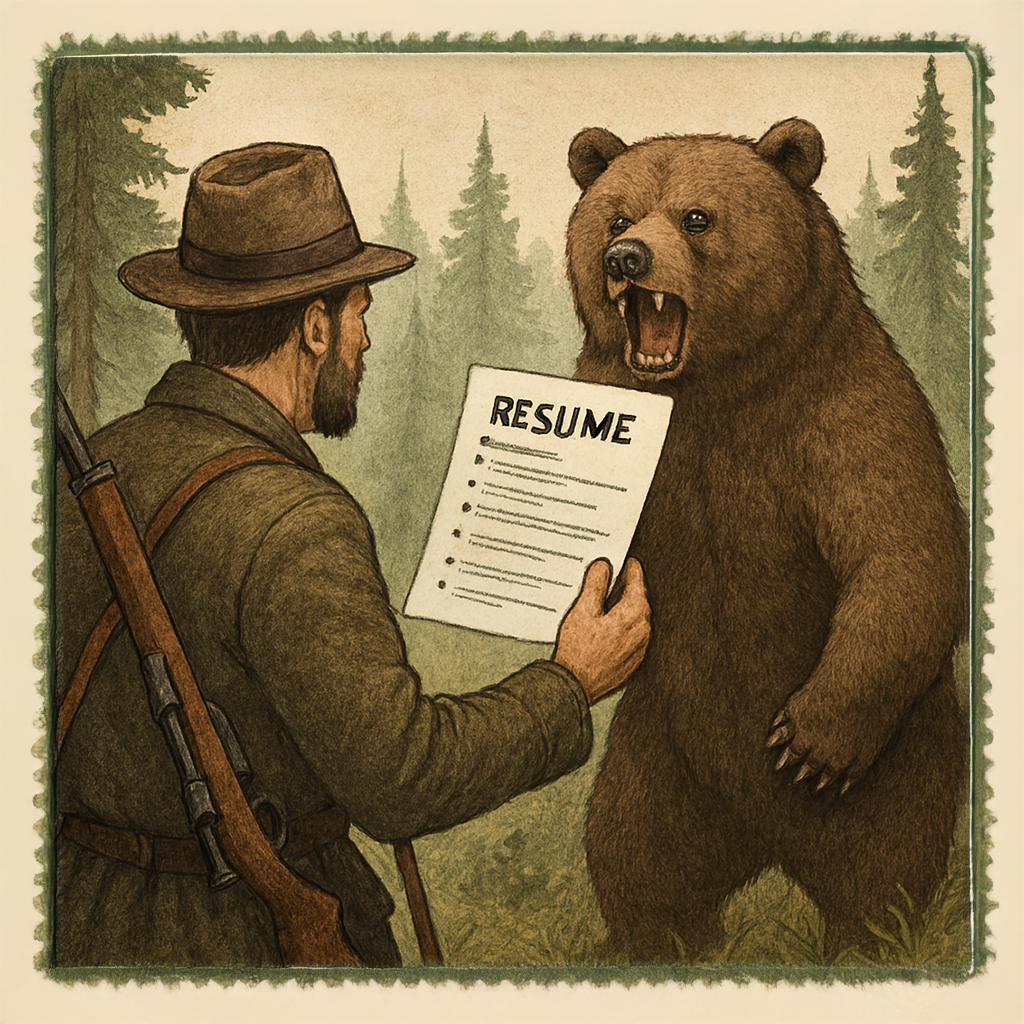The Stress of the Hunt

Job searches are often described as a journey, but for many, it feels more like a relentless obstacle course. The process is riddled with stress initiators that can take a toll on one’s mental and emotional well-being. The first hurdle is often the amount of time and effort required to tailor each resume and possibly a cover letter for every job listing; for most of us, taking the time to write an entirely new version of each document is just not going to happen. Sometimes, we will write a unique cover letter if the process allows for one – which is too-often not even allowed. It’s a balancing act where, on one hand, we have a meticulous task that demands our time and attention to produce something that will get you noticed, and on the other, you feel a little disconnected, as if they think you have nothing better to do than just write one short letter. They don’t care that you don’t have just one, you might have eight or twelve to write and it’s exhausting.
No Closure for You
Once applications are sent, job searchers face a grueling waiting period. Days turn into weeks without a response, triggering feelings of uncertainty and self-reflection; anxiety starts to build. This lack of feedback and any sense of closure can be disheartening and can lead to self-doubt that is rooted in nothing but the lack of response which often has nothing to do with you. The rule of thumb here is that everything takes longer than you think it should; this is common and it’s not you – it just feels that way. And when a phone screen or an interview invitation finally comes, you are just happy to have any response at all. Be careful, as this puts you at a disadvantage and the stress does not disappear; all too often, it shifts into high gear.
Staying Focused
For most of us, pursuing a Zen state where everything is peaceful and quiet is simply not an option; and if you don’t already have it, this is not the time to learn how to do it. For us, the secret to fighting stress is often about staying busy and avoiding long periods with nothing to do. Sure, you are “kicking the can down the road,” by pushing off processing all that worry. But that’s the point. Once you have a job, all the energy will have drained from the worry, leaving you with, “What was I worried about.” Preparing for phone screens and interviews should involve researching the company and rehearsing answers to potential questions, however, avoid focusing too much on one company. There is an old saying that, “There’s always another bus coming along.” A technique to keep from getting too hyper-focused on one position is to look at other companies and other jobs to keep reinforcing the idea that there are other jobs and other companies. Thinking that you absolutely need a particular job is stuff of ‘made for TV’ movies and is rarely true. The important part is not whether it is true or not, but that it doesn’t help you to think that way.
Understanding the Source
Stress comes from many sources and a big one is financial. The need for a steady income to cover living expenses looms large, creating a sense of urgency that can exacerbate feelings of anxiety. The longer the job search, the more these financial concerns can weigh on an individual, potentially leading to feelings of desperation. Generally, finance and emotion are a bad combination and those situations almost never go well when you mix them. And then there are the social pressures that also play a significant role. Often, understanding where the stress is coming from can help put it into perspective, allowing you do dismiss the parts that have now actual impact on your life and can be safely ignored.
Get Support
Job seekers often feel the weight of expectations from family and friends, and the pressure to secure a stable job can be overwhelming. Comparing oneself to peers who have successfully navigated the job market can lead to feelings of inadequacy and frustration. This is a time when having a support network can help a lot. This can come from family and friends that want to show their support and keep you from retracting into an emotional and social shell. It doesn’t feel normal but it can still be better than being alone with nothing to do and no one to talk to. Alternatively, there are online groups of people dealing with the same frustrations; in that, you can rest assured that you are not alone.
Maintaining Perspective
Mitigating the stress of job hunting is an essential part of the process and it is necessary to maintain a balanced perspective. Setting realistic goals, seeking support from loved ones, and engaging in self-care practices can help. Remember, every step, even the setbacks, are part of the journey towards finding your next job and understand the situations that don’t pan out as “dodging a bullet” event since your goal is not just finding any job but finding the right job that enhances your life and advances your career. It’s crucial to stay positive and persistent, knowing that the right opportunity will come in time.
